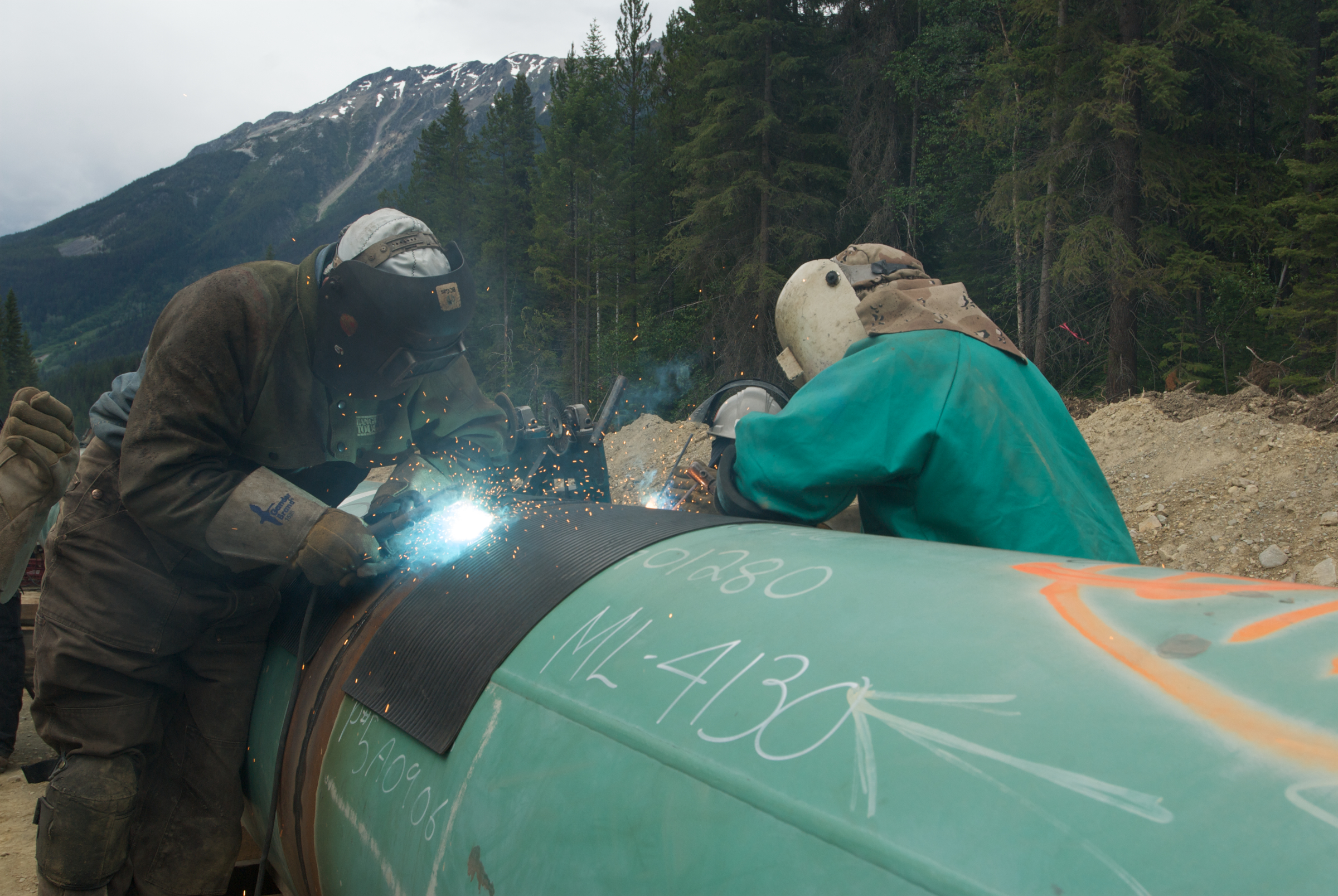
VANCOUVER—The company hoping to twin its pipeline between Alberta and B.C. claims some interveners broke the National Energy Board’s rules when they presented oral arguments at recent hearings on the proposed expansion.
Kinder Morgan has filed its written reply argument, triggering the close of the record in the often-contentious energy board proceeding into the Trans Mountain project. The board is expected to deliver a recommendation to the federal government by May.
The argument is Trans Mountain’s response to written and oral arguments delivered by municipalities, environmental groups and First Nations at hearings in Calgary and Vancouver.
“Certain interveners repeated their evidence as argument, in some cases verbatim,” states the document filed with the board on Wednesday.
The company alleges a group called Burnaby Residents Opposing Kinder Morgan Expansion, or BROKE, repeated evidence as argument, violating a procedural direction from the board.
The Burnaby residents’ group did not immediately respond to a request for comment. The group’s final argument urged the board to reject Trans Mountain for multiple reasons, including an “acute risk to public safety posed by the significant seismic hazard” in Metro Vancouver.
Trans Mountain also accuses some interveners of attempting to introduce new evidence during final arguments, which is also against the board’s rules.
“For example, in oral arguments the City of Vancouver quoted extensively from the NEB’s Canada’s Energy Future 2016 report, released in January 2016, well after evidentiary deadlines,” the argument says.
The report developed by the National Energy Board provided projections of Canadian energy supply and demand to the year 2040. It found that total end-use energy demand would increase by an average of 0.7 per cent per year—half of the 1.3 per cent annual increase between 1990 and 2013.
Trans Mountain has asked the board to disregard what it considers wrongfully-introduced new material while preparing its recommendation.
The City of Vancouver believes the section of the argument that Trans Mountain wants struck from the record is a statement from NEB chairman Peter Watson in his introduction to the annual energy report.
“To use ‘uncertain’ to characterize the past 18 months in Canadian energy would be an understatement,” Watson says in the statement.
“I doubt there is a single market observer who could have foreseen the dramatic fall in the global price of crude oil, one of Canada’s largest exports, from US$110 per barrel in mid-2014 to less than US$40 per barrel by end of December 2015 and then to less than US$30 per barrel in January 2016.”
City spokesman Tobin Postma says the statement—which goes on to note the historic climate agreement in Paris—provides a concise summary of world events about which there is no dispute and of which the board is entitled to take judicial notice.
“The statement also accurately reflects the extensive evidence that has been filed by the City of Vancouver and other interveners concerning the drop in oil prices over the last two years,” he says.
Kinder Morgan hopes to triple the capacity of the existing Trans Mountain pipeline to carry diluted bitumen from near Edmonton to Burnaby, B.C. The project would increase the number of tankers in Burrard Inlet seven-fold.
Ottawa has announced a four-month extension to the time limit for its decision on the project, with an announcement expected in December.
Trans Mountain has said it has reviewed its project schedule and is now expecting the in-service date for the expanded pipeline to be December 2019.